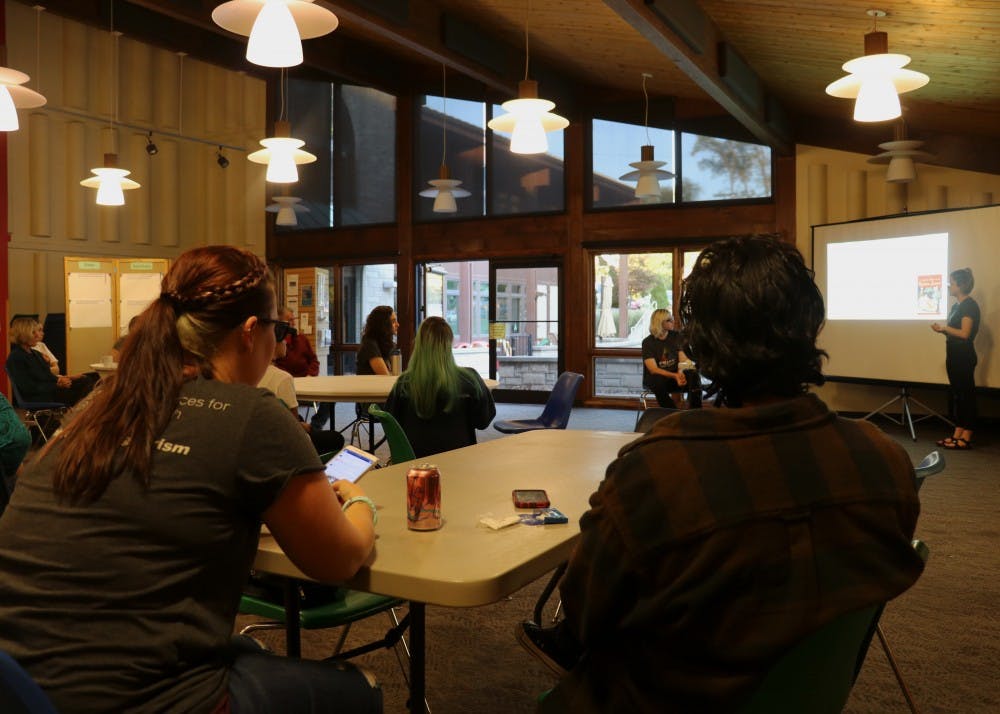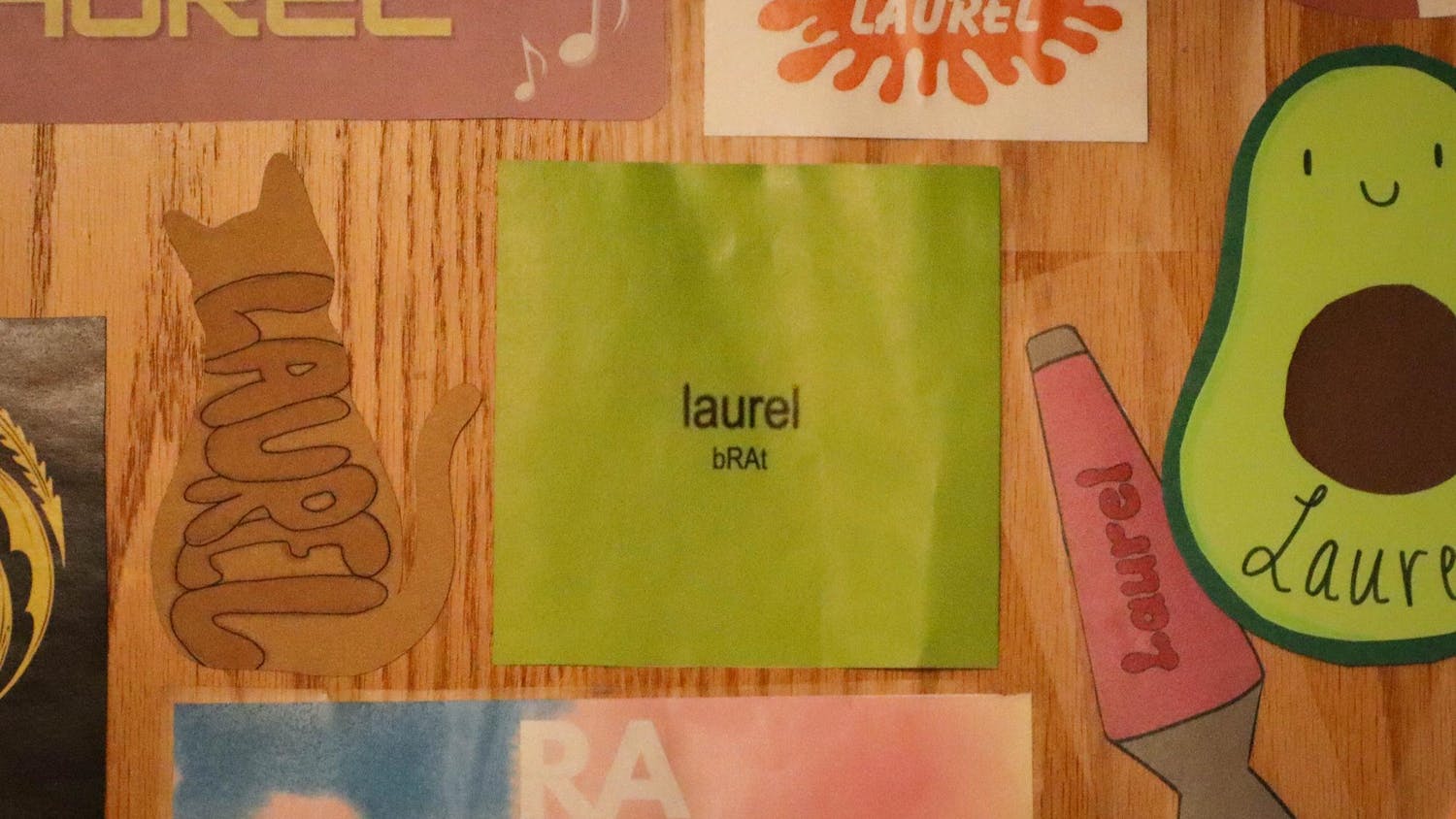The American Gay Rights Movement began in the 20th century.
Prominent moments include the first brick thrown at the Stonewall Inn Riots of 1969, where violent protests began after a routine police raid of the popular LGBT bar. In the 1980s, the ACT UP international advocacy group formed in the midst of the AIDS Crisis to help people living with the disease.
But Tuesday evening at the Community Wide Education Night at the Unitarian Universalist Church of Bloomington, the LGBT history lesson began as far back as 3000 B.C. Organized by Prism Youth Community, the event brought 23 people together to learn more about LGBT history around the world.
“A lot of people think that LGBTQ people or identity is a new thing, whereas we definitely try to let people know that LGBTQ identity has been around as long as people have been around,” said Spencer Biery, Chair of the Education and Training Committee at Prism.
Biery said this was the first time Prism has put on an LGBT history event. He said the idea was partly inspired by the fact October is LGBT History Month and partly inspired by the fact they wanted to be prepared for their trivia night Friday.
“Especially in terms of non-recent history, we felt like we weren't informed,” Biery said. “And we were like, ‘Well, we want to learn,’ and then we also wanted to let other people know because we thought that a lot of people didn't have a good idea of LGBT history."
The crowd was a mix of older Bloomington residents and high school students from the area, some of whom were members of Prism. Ivy Richardson, a student at Bloomington High School South and a member of Prism, said that she joined when she was 14.
“It’s important to remember where we came from and our roots,” Richardson said.
The night began with a presentation by three Prism leaders. Spencer Biery, Becca Smith and Alec Deoroto presented on LGBT history in three parts: Early History (3000 B.C. to 1000 A.D.), Age of Contact (1400-1870) and Modern and Civil Rights Movements (1870 to today).
Early History included LGBT history from India, China, the Middle East, Greece and Japan. Among the different regions that were examined, all had fairly open cultural feelings toward homosexuality.
Smith said that the Age of Contact was a time when a lot of stigma creeped into many cultures as a result of colonization.
“These open attitudes began to change,” Smith said.
Smith said that in the Americas, where the Mayans and Aztecs had previously had laid-back attitudes toward same-sex relationships, the conquest by the Spanish and Portuguese led to laws that were rooted in Christianity. Along with the Spanish and Portuguese came many missionaries looking to spread Christianity, who saw same-sex relationships as against the beliefs they were trying to spread.
Biery followed with the modern history of the LGBT community. He moved through the riots of the '60s such as the Stonewall Inn Riots.
The trivia also included questions about Compton’s Cafeteria Riot. It was one of the United States’ first known LGBT riots, which took place in San Francisco’s Tenderloin district in 1966. The Tenderloin was one of the only places in the city that transgender people felt safe until the cafeteria staff began to call the police to arrest their transgender patrons. The arrests led to a riot in the cafeteria where dishes and coffee were thrown, a police car’s windows were broken and a newsstand burned down.
“I think a lot of people think, ‘Oh, this was so long ago,’ but it really wasn’t,” Biery said.
After the presentation, attendees broke into groups to research LGBT history in individual regions. Groups looked into South America, Africa, South Asia, Southeast Asia and China.
Penny Githens, 67, said that she came to the event because she wanted to learn more about issues in the LGBT community.
Githens was partially inspired to go because she is running for Indiana legislature. She said she thinks it is important to know about LGBT issues both as a person and as a candidate.
She said she feels like she only hears about international issues when they make the U.S. news. At the Prism education night, she was able to learn more about the situation for LGBT people in other countries.
“There are changes going on throughout the world, and sometimes we are slow to catch up,” she said.
Githens said it’s important to learn about LGBT history because there is still more to be done to help the community moving forward.
“In looking back we start to realize, historically, there’s not a basis for the prejudice we see today,” Githens said.




